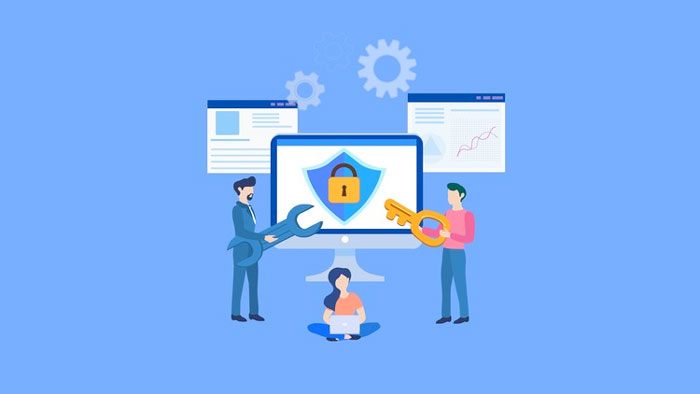Technology has made massive advancements, but improvements are still needed on the security front. Many flaws are still pretty much present. Moreover, security breaches seem to happen rather frequently. This is why companies are coming together to make online presence safe and secure, by tightening security on the devices they manufacture.

The data doesn’t lie either. Companies have been reported to invest over $400 billion to make technology safe. Considering how “work from home” has become the new norm, every other mobile or laptop company is aiming at tighter security on their devices.
The Closing Gap Between Mobiles and Laptops
There is no doubt about the fact that mobiles and laptops are closing the apparent gap between them in terms of usability. They are almost equally powerful now, especially for day-to-day tasks. A follow-up question thus arises—which one is safer?
Let’s go through some pertinent points that will make this clearer.
Mobile Devices are Better Monitored
There is no doubt about the fact that both Google and Apple put a lot of effort into security. When we say “laptops”, we mean Windows PCs mostly (Macs are the epitome of safety, owing to their own safety chips). That being cleared out, there is one major reason why mobile devices might just be better monitored than Windows laptops.
The reason is simple. A direct app store gives both Google and Apple the ultimate advantage over what they can allow and what they deem harmful. With recent advancements, even Google has tightened up their security over their app store and other services. While there are initiatives from Microsoft’s front on this, they are still pretty much lacking a comparable approach to Google.
Side Loading in Windows is Problematic
The other thing is side loading. Windows App store is, to say the least, poor. There aren’t too many usable applications, and most of them don’t even have great support. Naturally, laptop users have no option but to side-load apps.
This makes them prone to extreme danger online. For instance, while you can find various free antivirus for Android on the Play store too, these are mostly safe because of direct supervision from Google. But there is no such thing when it comes to Windows.
While some apps may appear to be harmless, unless you are getting it directly from the developer’s website, apps that are sideloaded can prove to be a wolf in sheep’s clothing.
The Debate of Personal vs Company
There is another thing to be noted here. This might sound a bit subjective, but it is far from it. More often than not, people use laptops provided by their employer. On the other hand, one’s mobile phone is more of a personal device.
This plays a big role in the way they treat the device itself. Having a lot of personal liability on their phones, such as media files, numbers, bank details, and so on, the human mind is pretty careful with how it treats their mobile. Once you enter a shady website using your own device and have a bad experience, you are next going to be looking up how to protect your mobile from that point on.
Laptops, on the other hand, face the brunt of security risks. Companies mostly do not allow their employees to use their laptops for personal reasons, so no credentials get stored there. It logically makes all the more sense when employees use it for casual tasks and engage in unsafe internet practices.
Trying to mesh your personal life security practices with company property security compliance can cause massive breaches.
Which is Easier to Secure?
After assessing the situation, a fair comparison can be drawn between mobiles and laptops. We have made it a little more elaborate by comparing mobiles and laptops across all OS platforms.
The Safest—Macs and Other Apple Devices
There is no doubt about this. Apple is at the pinnacle of security and for all the right reasons. They have dedicated chip sets to managing security, and if that wasn’t enough, their software is unparalleled. Irrespective of what Apple device you have, you are safe. At least until you jailbreak it.
Android – Close Second
After having improved their security, Google devices are a close second. They have been coerced by Apple indirectly to focus on security too. Ergo, apps providing mobile security for Android have ramped up their game too. While they don’t have the luxury of better chips dedicated to security, Apple devices surely have the software prowess needed here. Close second, in our books.
Finally, Windows
The lack of a valid app store is certainly a bane for Microsoft. Naturally, their products running on Windows seem to be a lot less safer than the competition’s. While Microsoft seems to be trying to close the gap with regards to security, a lot of work still needs to be done.
Conclusion
Laptops aren’t really safer than mobiles, or their Mac counterparts. But then again, 100% safety does not practically exist, so you ought to practice safe and healthy browsing.



